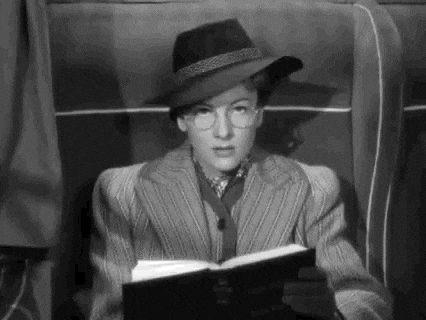The difference between ‘try’ and ‘triumph’ is just a little umph!
Howdy, this is UniScoops! We’re the newsletter that’s more refreshing than a cuppa after a long day of pretending to revise.
So, without further ado…
Here’s a taste of what we’re serving today:
The Netflixication of Classic Novels 📺
PLUS: Seychelles and Marine Plastic Pollution, Calvinism and the Modern World, and What Do We Owe the Dead? ⚖️
ENGLISH
The Netflixication of Classic Novels 📺

Me trying to figure out what to watch on Netflix
When was the last time you watched something on Netflix? Probably pretty recently. When was the last time you heard someone talk about a new Netflix show? Maybe even more recently. It’s no secret that Netflix’s cult-like platform has significantly influenced the entertainment industry — and lately, their newest obsession seems to be adapting novels into series and films. On the surface, this venture appears to be a step forward: making literature more accessible and engaging for audiences worldwide. These adaptations have not only introduced classic and contemporary stories to new viewers but have also impacted book sales, cultural conversations, and the way stories are told on screen. However, it’s not all sunshine and rainbows in the world of bringing classic literature into the 21st century.
💡 Things to consider
Reviving Interest in Original Works: One notable effect of Netflix's adaptations is the resurgence in popularity of the original books. Gabriel García Márquez's One Hundred Years of Solitude experienced renewed interest following the announcement of its adaptation into a Spanish-language series. The series aims to honor the novel's rich narrative and complex characters, introducing magical realism to a new generation. Similarly, Julia Quinn's Bridgerton series saw a significant boost in sales after its adaptation, with The Duke and I and The Viscount Who Loved Me reaching The New York Times bestseller list.

One Hundred Years of Solitude
Oversimplification of Complex Narratives: A major drawback often raised by fans of the original media is that books contain complex narratives, inner monologues, and intricate world-building that simply cannot be fully translated to the screen. As a result, adaptations may simplify deep themes, remove key plot points, or flatten characters. For example, Thirteen Reasons Why, based on Jay Asher’s novel, expanded the book’s premise into multiple seasons, which led to a more sensationalized and prolonged story. Critics argued that the show mishandled sensitive themes of mental health and suicide, accusing it of glorifying these issues rather than treating them with the care they required.
Reading Habits vs. Passive Consumption: This trend has undeniably increased book sales and renewed interest in certain titles, demonstrating the symbiotic relationship between visual media and literature, with viewers often seeking out the original books after watching the series or films. However, while Netflix adaptations have reignited interest in reading, they have also contributed to a shift in how audiences consume stories. Instead of engaging deeply with a book’s language, themes, and the process of personal interpretation, some viewers opt for the “easier” choice of watching an adaptation. This can result in a surface-level understanding of a story rather than the richer engagement that comes from reading a novel.
With adaptations becoming more frequent, there is growing concern that some people may rely solely on film and television for their literary knowledge, bypassing the books altogether. This could contribute to a culture where visual storytelling replaces reading, potentially diminishing literary appreciation among younger generations.
🔎 Find out more
One Hundred Years of Solitude: How a Bold Netflix Series Honors a Beloved Novel: https://www.vanityfair.com/hollywood/story/one-hundred-years-of-solitude-how-a-bold-netflix-series-honors-a-beloved-novel?utm_source=chatgpt.com
The Netflix Literary Connection: https://www.publishersweekly.com/pw/by-topic/industry-news/page-to-screen/article/79793-the-netflix-literary-connection.html
Rodrigo Prieto’s Risky Directorial Début: https://www.newyorker.com/culture/persons-of-interest/rodrigo-prietos-risky-directorial-debut?utm_source=chatgpt.com

🍒 The cherry on top
🌊 Seychelles and Marine Plastic Pollution: The Seychelles’ stunning beaches are being swamped by plastic waste – but where is it all coming from? This article breaks down how researchers tracked the origins of this marine plastic, revealing a surprising and global story behind the pollution crisis. Great if you’re interested in Environmental Science, Geography, or Biology!
📜 Calvinism and the Modern World: What does Calvinism really have to do with the modern world? This thoughtful essay explores how the Reformed tradition, rooted in the ideas of John Calvin, quietly shaped American culture and intellectual history — even as most people today know little about it. Great if you’re interested in Philosophy, History, or Theology!
⚖️ What Do We Owe the Dead?: This powerful essay explores an unsettling truth: international human rights law only protects the living, leaving no clear rights for the dead. Through the haunting story of ancestral graves washed away by climate change in Australia and the global neglect of unclaimed bodies, it asks whether we need a Universal Declaration on the Dignity of the Dead. Great if you’re interested in Law or Sociology!

👀 Keep your eyes peeled for…
🗳️ Poll
How was today's email?
That’s it for this week! We’d like to thank this week’s writer: Poppy Seagrove.

💚 Like UniScoops?
Forward this edition to someone who’d love to read it for extra kudos!
📢 Want to tell us something?
Reply to this email to tell us what you think about UniScoops, or to give us any suggestions on what you’d like to see.
🧐 New to UniScoops?
Get your weekly fix of academia with our fun, thought-provoking newsletter. No jargon, no fluff, just the good stuff. Subscribe today.


